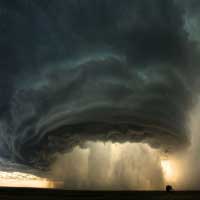U.S. stocks drop; investors on fiscal-cliff watch
Post# of 103143

U.S. stocks drop; investors on fiscal-cliff watch
Technology sector hit along with Apple Inc.
NEW YORK (MarketWatch) — U.S. stocks declined Friday, with the Dow industrials and the S&P 500 halting their longest stretch of weekly gains since August, as investors fixated on the lack of a federal government budget deal and ignored upbeat economic reports in the U.S. and China.
Apple Inc. (NASDAQ:AAPL) fell 3.8% after UBS AG reduced its price estimate for shares of the consumer technology company, citing worries of slowing demand for the iPhone and iPad.
The market has mostly maintained a wait-and-see stance anticipating resolution to negotiations that had President Barack Obama and House Speaker John Boehner on Thursday speaking for nearly an hour at the White House, with both of their offices saying lines of communication remained open after their third such meeting.
“It’s certainly a source of frustration; today we got rather compelling news showing a bounce back in manufacturing post superstorm Sandy,” said Eric Wiegand, senior portfolio manager for The Private Client Reserve, a division of U.S. Bank Wealth Management.
The Dow Jones Industrial Average (DJI![]() JIA) shed 35.71 points, or 0.3%, to 13,135.01, leaving it off 0.2% for the week.
JIA) shed 35.71 points, or 0.3%, to 13,135.01, leaving it off 0.2% for the week.
Off 0.3% from the week-ago finish, the S&P 500 index (SNC:SPX) declined 5.87 points, or 0.4%, to 1,413.58, with technology the leading laggard and natural-resources the best performing of its 10 major industry groups.
Both the Dow and the S&P 500 ended a three-week winning stretch.
Off for a second straight week, the Nasdaq Composite (NASDAQ:COMP) lost 20.83 points, or 0.7%, to 2,971.33.
For every seven stocks that gained, eight fell on the New York Stock Exchange, where composite volume neared 3.2 billion.
Other reports Friday showing contained inflation in the U.S. and improved factory activity in China were also”equity-market friendly, yet here we are with the political theater that is taking place in Washington,” Wiegand said.
Yet the market has displayed remarkably little distress over “the absence of a comprehensive fiscal policy [which] is confounding investors and certainly businesses,” said Wiegand, who also noted “a decided absence of volatility,” a scenario he chalked up to cliff fatigue and investor disengagement seen in the mild trading volumes. http://www.marketwatch.com/story/stock-market...2012-12-14
 (0)
(0) (0)
(0)